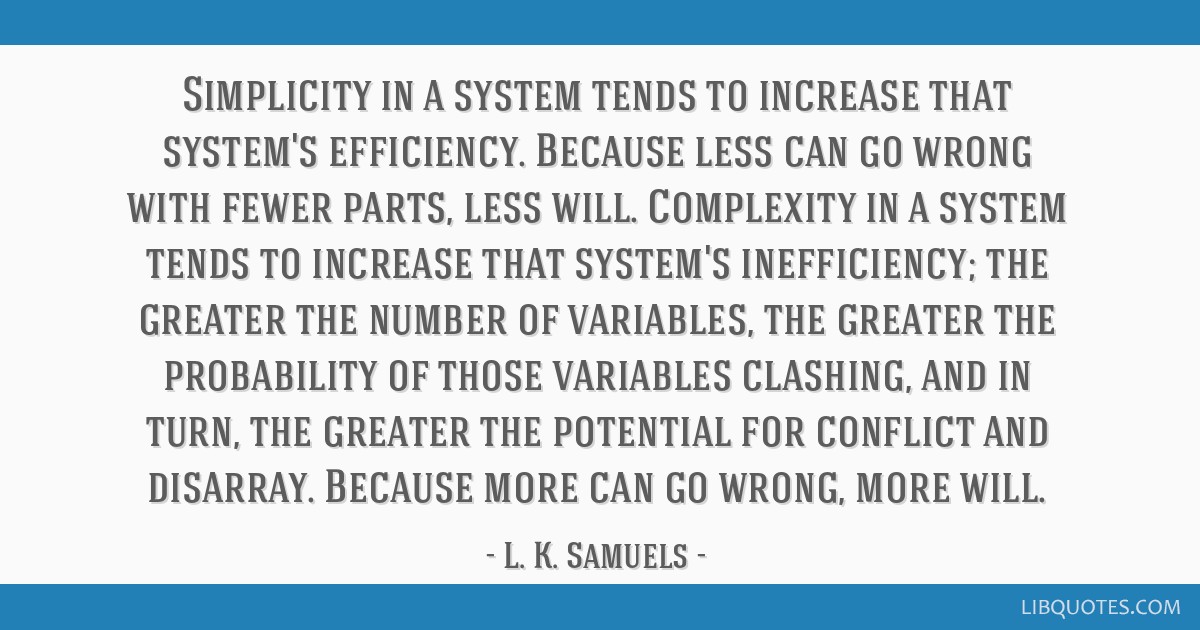Simplicity in a system tends to increase that system's efficiency. Because less can go wrong with fewer parts, less will. Complexity in a system tends to increase that system's inefficiency; the greater the number of variables, the greater the probability of those variables clashing, and in turn, the greater the potential for conflict and disarray. Because more can go wrong, more will.
p. 191. - In Defense of Chaos: The Chaology of Politics, Economics and Human Action, 2013























